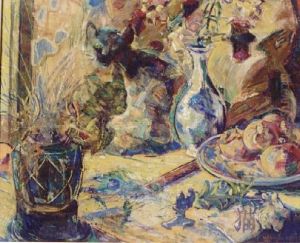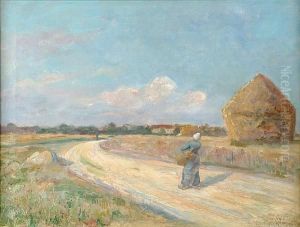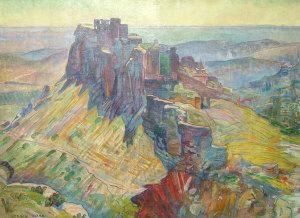Vernon Blake Paintings
Vernon Blake was a British artist known for his contributions to the field of painting, particularly landscape painting. Born on September 23, 1894, in London, Blake grew up in an era where the influences of the late Impressionists were still very much felt in the art world. He developed an early interest in the arts and was encouraged to pursue his passion.
Blake received his formal art education at the Slade School of Fine Art in London, which was known for nurturing some of the most prominent British artists of the time. During his studies, he was influenced by the works of the great British landscape painters before him, like John Constable and J.M.W. Turner, but he was also receptive to the evolving styles of his contemporaries.
After serving in World War I, Blake returned to his artistic pursuits with a renewed vigor and a sense of urgency to capture the fleeting beauty of the natural world. His work began to reflect a combination of traditional techniques with a more modern sensibility. Blake was not just a painter but also a teacher, and he spent a part of his career educating future generations of artists.
The interwar years were a productive period for Blake. He exhibited at several galleries and was associated with groups such as the New English Art Club, contributing to the vibrant artistic scene in Britain during the early 20th century. His landscapes often depicted the English countryside, imbued with a sense of tranquility and a delicate play of light and color that revealed his deep connection to nature.
Vernon Blake continued to paint and exhibit his work throughout his life. He passed away in 1970, leaving behind a legacy of serene and contemplative landscapes that capture the timeless essence of the British rural landscape. His works are remembered for their quiet beauty and remain appreciated by collectors and art enthusiasts to this day.


![[perspective Landscape With Goats]](https://www.niceartgallery.com/imgs/416786/s/vernon-blake-perspective-landscape-with-goats-51e19ab5.jpg)
